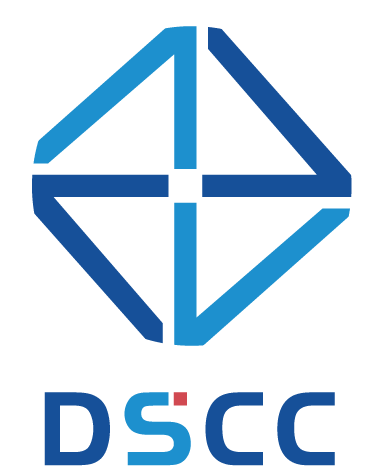SPEAKERS
Prof. Jiangzhou Wang IEEE Fellow University of Kent, UK | Brief Introduction: Jiangzhou Wang is a Professor with the University of Kent, U.K. His research interest is in mobile communications. He has published more than 500 papers and five books. He was a recipient of the 2022 IEEE Communications Society Leonard G. Abraham Prize. He was the Technical Program Chair of the 2019 IEEE International Conference on Communications (ICC2019), Shanghai, Executive Chair of the IEEE ICC2015, London, and Technical Program Chair of the IEEE WCNC2013. He is/was the editor of multiple international journals, including IEEE Transactions on Communications from 1998 to 2013. Professor Wang is an International Member of the Chinese Academy of Engineering (CAE), a Fellow of the Royal Academy of Engineering (RAEng), U.K., Fellow of the IEEE, and Fellow of the IET. Speech Title: Near-field Communications and Sensing Technology Abstract:Far-field channel model has been considered for decades in wireless communications. However, as ultra-massive MIMO is promising for future wireless communications with high frequency such as millimeter wave and TeraHz, near-field channel model becomes important. In this talk, near-field channel model and latest research results in UM-MIMO will be presented. |
Prof. Dr. Tarik Ahmed Rashid Principal Fellow for the Higher Education Authority (PFHEA-UK), University of Kurdistan Hewlêr (UKH), Iraq | Brief Introduction: Dr. Tarik Ahmed Rashid is a Principal Fellow for the Higher Education Authority (PFHEA-UK) and a professor in the Department of Computer Science and Engineering at the University of Kurdistan Hewlêr (UKH), Iraq. His areas of research cover the fields of Artificial Intelligence, Nature Inspired Algorithms, Swarm Intelligence, Computational Intelligence, Machine Learning, and Data Mining. He is a member of (IEEE, Machine Intelligence Research Labs). He has journal editorial experience as an editor/board member and acted as a Keynote conference speaker in several conferences, conference chairing, conference program committee member, etc. It is worth mentioning that our team has designed several single and multi-objective optimization algorithms, such as FDO, CDDO, DSO, ANA, FOX, LPB, ECA*, and iECA*. Speech Title: Revolutionizing Medical Diagnosis and Treatment: The Impact of Machine Learning and Optimization Abstract: Computer science is rapidly reshaping the landscape of healthcare with cutting-edge machine learning and optimization methodologies. This talk will delve into the transformative applications of these techniques, focusing on advancements in medical image analysis, disease prediction, and personalized treatment design. We'll explore how deep learning algorithms excel at disease classification, surpassing traditional methods in tasks such as tumor detection and tissue abnormality identification. Furthermore, we'll examine novel optimization strategies for drug development, accelerating the search for effective therapies while minimizing costs and side effects. The presentation will highlight the immense potential of these computational approaches to revolutionize patient care, offering earlier diagnoses, more accurate treatment decisions, and ultimately, improved health outcomes. |
Prof Gyu Myoung Lee IEEE Senior Member Liverpool John Moores University (LJMU), UK | Brief Introduction: Gyu Myoung Lee joined the Liverpool John Moores University (LJMU), UK in 2014, as a Senior Lecture in the department of Computer Science and was promoted to a Reader in 2017 and a Professor in 2020. He is also with KAIST Institute for IT convergence, Daejeon, Rep. of Korea, as an Adjunct Professor from 2012. Before joining the LJMU, he worked with the Institut Mines-Telecom, Telecom SudParis from 2008. Until 2012, he was invited to work with the Electronics and Telecommunications Research Institute (ETRI), Rep. of Korea. He worked as a research professor in KAIST, Rep. of Korea and as a guest researcher in National Institute of Standards and Technology (NIST), USA, in 2007. He worked as a visiting researcher in the University of Melbourne, Australia, in 2002. Furthermore, he also has work experience in industries in Rep. of Korea. His research interests include Internet of Things, Web of Things, computational trust, knowledge centric networking and services considering all vertical services, Smart Grid, energy saving networks, cloud-based big data analytics platform and multimedia networking and services. Dr. Lee has been actively participating in standardization meetings including ITU-T SG 13 (Future Networks and cloud) and SG20 (IoT and smart cities and communities), IETF and oneM2M, etc., and currently serves as a Rapporteur of Q16/13 (Knowledge centric trustworthy networking and services) and Q4/20 (e/Smart services, applications and supporting platforms) in ITU-T. He is also the chair of ITU-T Focus Group on Data Processing and Management (FG-DPM) to support IoT and smart cities & communities. He has contributed more than 300 proposals for standards and published more than 100 papers in academic journals and conferences. He received several Best Paper Awards in international and domestic conferences and served as a reviewer of IEEE journals/conference papers and an organizer/member of committee of international conferences. He is a Senior Member of IEEE. Speech Title:Towards Composable Digital Twins – Co-design Virtual Continuum Abstract: In my talk, I would like to briefly introduce recent technical trends from the data and user centric perspectives and then highlight the importance of composable approaches along with the composable architecture concept for scaling up digital twin. In addition, I would like to discuss several challenges to eventually build virtual continuum collaboratively from emerging networking and services point of views. |
Copyright© DSCC 2024
2024 4th International Conference on Digital Signal and Computer Communications (DSCC 2024) http://2024.icdscc.net/

